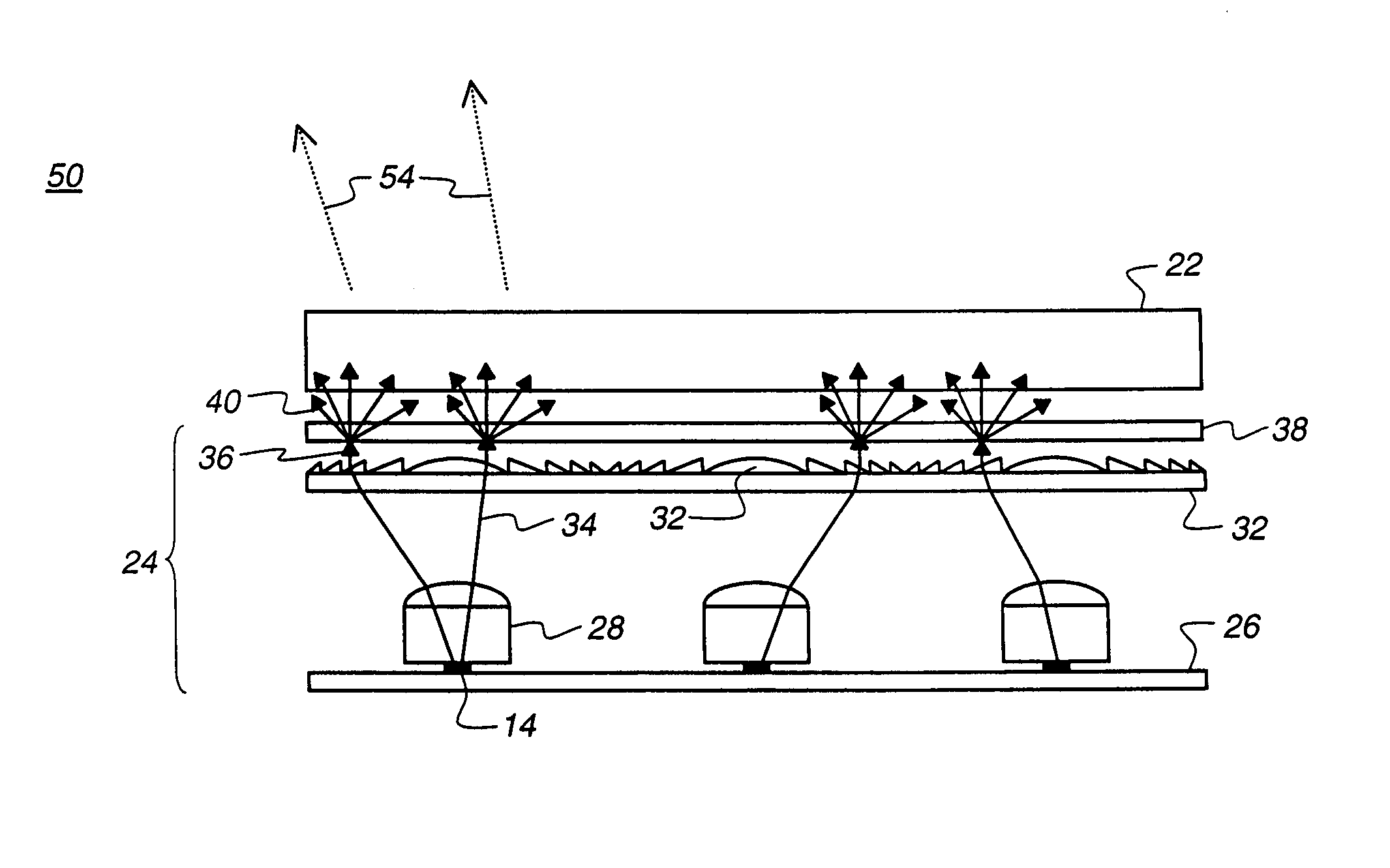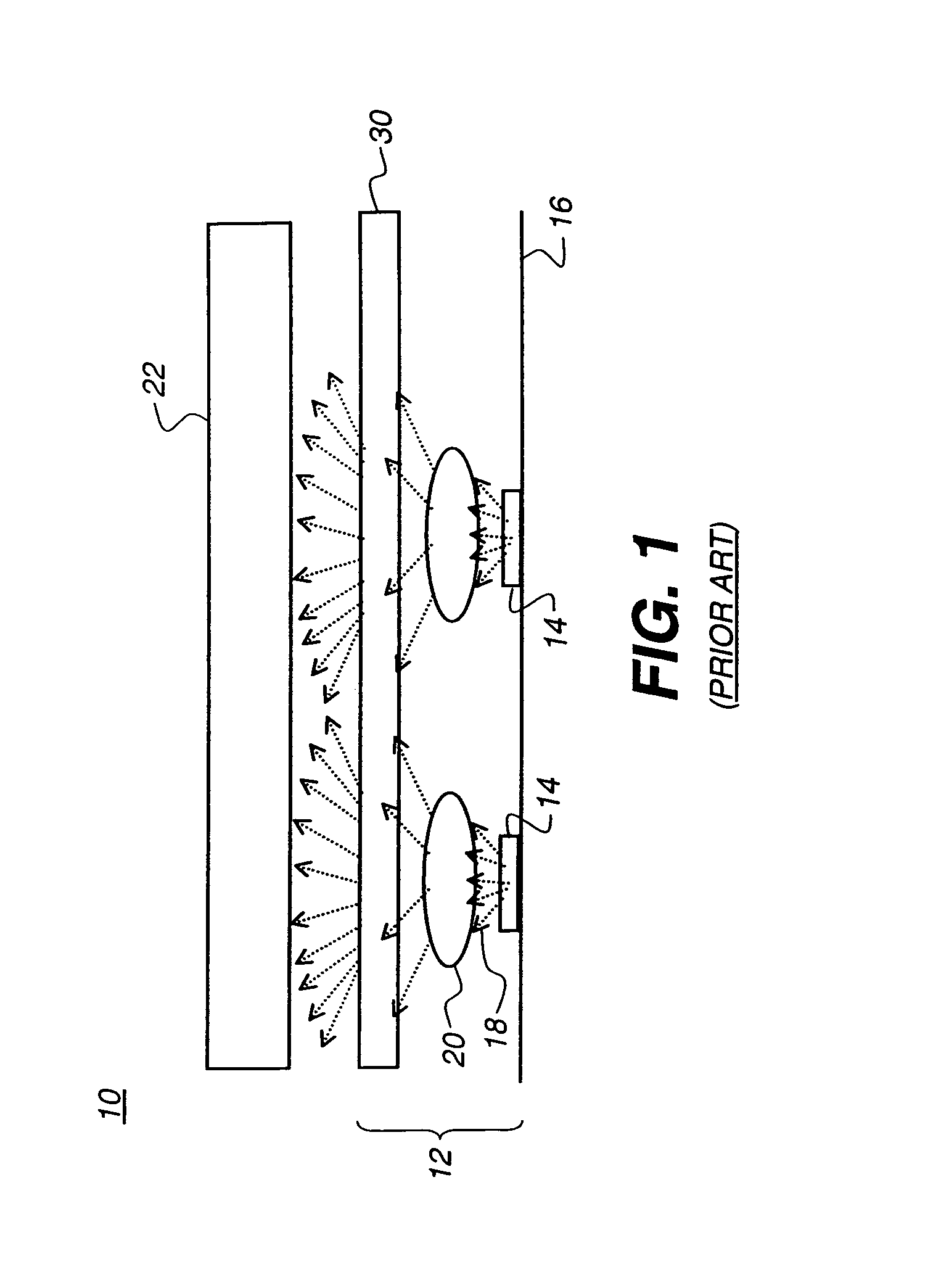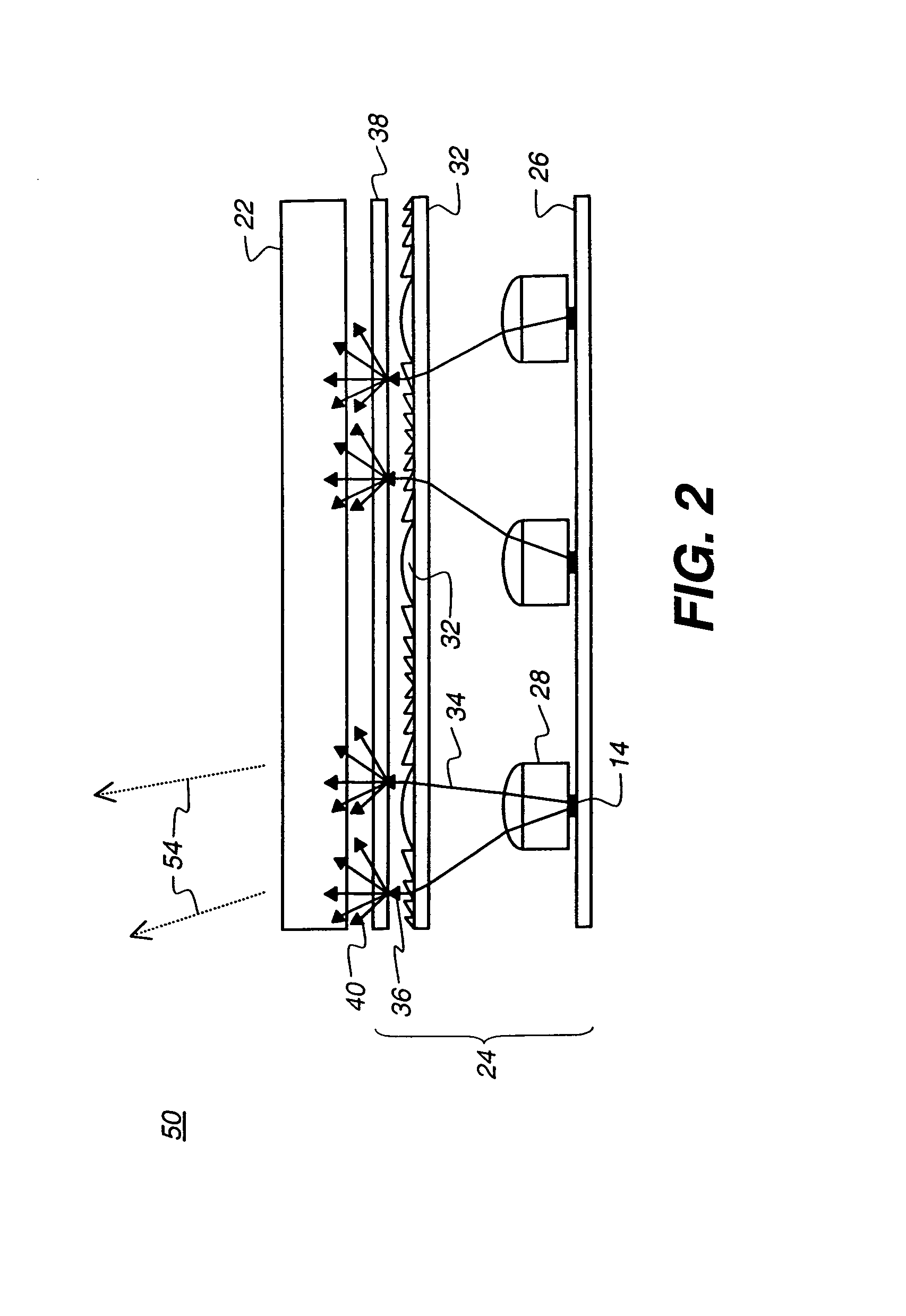Backlight using surface-emitting light sources
a surface-emitting light source and backlight technology, which is applied in the direction of lighting and heating apparatus, point-like light sources, instruments, etc., can solve the problems of limiting the projected growth of ccfl lamps, warping or otherwise damaging one or more of the optical film components, and ccfl lamps contain mercury and other issues, to achieve uniform luminance, reduce cost, and thin dimensional profiles
- Summary
- Abstract
- Description
- Claims
- Application Information
AI Technical Summary
Benefits of technology
Problems solved by technology
Method used
Image
Examples
Embodiment Construction
[0047]The present description is directed in particular to elements forming part of, or cooperating more directly with, apparatus in accordance with the invention. It is to be understood that elements not specifically shown or described may take various forms well known to those skilled in the art.
[0048]Referring to FIG. 1, there is shown, in simplified cross-sectional form for the sake of description, the arrangement of a portion of a conventional LCD display 10 using an LED backlight 12 to illuminate an LC device 22. A number of LEDs 14 are arranged along a surface 16, each providing a source illumination beam 18. A refractive element 20, typically a lens, spreads the source illumination beam. A diffuser 30 helps to provide further angular spread and minimize “hot spots” of higher luminance.
[0049]As a first approximation, LED 14 acts as a Lambertian source, or point source, broadcasting source illumination beam 18 over a broad range of angles. However, the spatial luminance distri...
PUM
 Login to View More
Login to View More Abstract
Description
Claims
Application Information
 Login to View More
Login to View More - R&D
- Intellectual Property
- Life Sciences
- Materials
- Tech Scout
- Unparalleled Data Quality
- Higher Quality Content
- 60% Fewer Hallucinations
Browse by: Latest US Patents, China's latest patents, Technical Efficacy Thesaurus, Application Domain, Technology Topic, Popular Technical Reports.
© 2025 PatSnap. All rights reserved.Legal|Privacy policy|Modern Slavery Act Transparency Statement|Sitemap|About US| Contact US: help@patsnap.com



